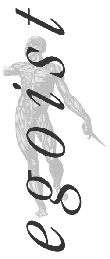 |
Mariah II
By Claire Dix
There is nothing more there than I can see here, even less you could say but it is something to me, the more I try to describe the less I convey.
I remember it simply - blue sky, brown earth, with tiny stones that turned silver if we drove past like a hundred shattered mirrors caught in the light.
There is even less there than I can see here but it is full all the same. The sky is a huge dome above the earth and it is deep, as only the sea is here, so thick and warm I could feel it on my skin. The sands are loose and they run when the air moves slowly and really there is room for nothing more.
I think of it often. I hear it in the voices of others when they try to speak of desperate, lonely things. Telling stories they don't listen to, I hear their emptiness instead. And I don't blame them for hiding it all for I refuse to speak of such things aswell. I refuse to speak of her. She is my sister now always in my mother's land.
So when I am empty I will think of perfect things.
Once when the sky to the west was the faintest of reds and the sun and the winds were low then from inside its glass walls the Exxon lights were white and strong on the road. I sat there outside it holding my knees and the wind tore grey ash from the cigarette that hung limply between my fingers. The light reached across the road to a shack, half on wheels that sold leather and buffalo skulls and just at its door stood a fake bull with dead eyes that in the half light seemed to drag its hooves through the earth. Over the door was a speaker and the cover lifted off at the top and the side and in the evening it played music, crackling and low.
Sometimes a man that seemed to exist only in that place would sit by the bull and spit in the dirt and lift his hat to run his hand over his head then replace it again. Other times when the breezes were warmer he would place it on the bull's head and stand, and his boots would make shapes in the earth as he moved slightly, with small steps, that soon and with ease rose higher off the ground and came down faster, and so he sprung from one foot to another. Now he was dancing, always the same way, to one rhythm that was never the music over his head but I think was the wind's rhythm that the sands moved to and his arms swayed and he watched them, and they were fluid like flowers under waves.
That is what I know of him and I am glad. For any more could only steal from his perfection, the perfection of his senile dance.